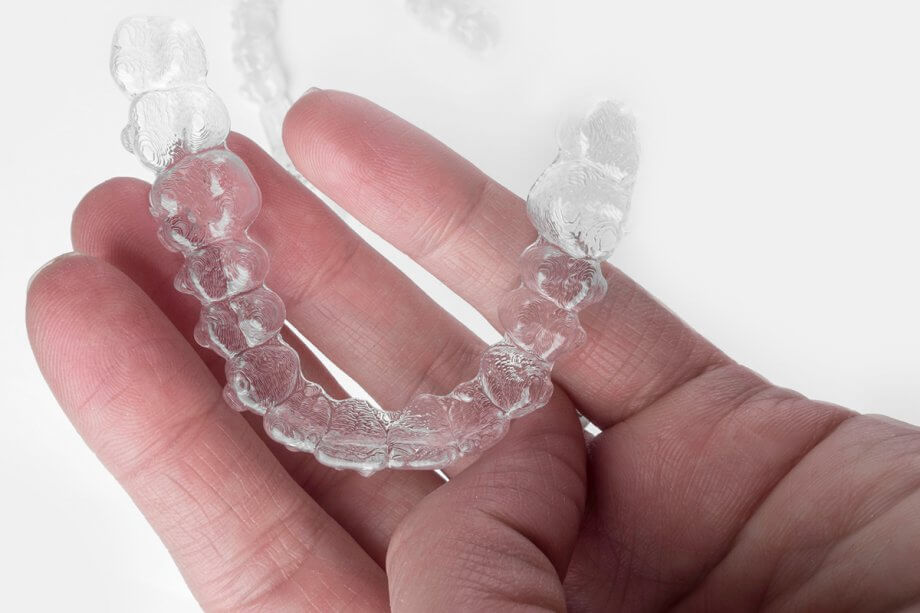Invisalign revolutionized orthodontic treatment in the U.S. Offering a less abrasive, removable, and transparent alternative to metal bracket and wire braces, Invisalign has helped millions of teens and adults to achieve a straight smile. But, there are some limitations to conditions that Invisalign can treat. Read on for answers to frequently asked questions about Invisalign, including if Invisalign can fix an overbite.
Overbite Issues Invisalign May Fix
The American Dental Association has reported that as many as 70% of children may show signs of an overbite. Invisalign has proven effective in treating a variety of mild to moderate overbite problems in teens.
The medical term for an overbite is a “class II malocclusion.” It occurs when the upper jaw overlaps the lower jaw. Overbites develop during childhood, either due to genetics, or due to habits such as thumbsucking, or tongue thrusting. Sometimes overbites develop as the result of both genetics and habits.
Two types of overbites may affect your child. These are skeletal overbites and dental overbites. Skeletal overbites are incredibly common and driven by genetics, which determines jaw and tooth sizes. More specifically, skeletal overbites result from a mouth that is too small to accommodate all teeth, leading to crowding. Or, a skeletal overbite may also result from a mouth that is larger than necessary, leading to spaced teeth.
A dental overbite is more likely caused by childhood habits, including long-term pacifier use, thumb sucking, or finger sucking. The long-term pressure of the tongue on the back of the teeth is often the culprit in dental overbites. Dental overbites may also result from the premature loss of baby teeth and breathing disorders such as sleep apnea.
Invisalign may be able to correct skeletal or dental overbites. Or, Invisalign treatment may follow other orthodontic treatments such as the use of palatal expanders or tooth extractions to correct minor to moderate overbites.
What Happens if You Don’t Fix an Overbite?
Although an overbite may seem like an insignificant dental condition, if left untreated, it can lead to serious dental and health problems. Overbites frequently deepen over time, which leads to the wearing away of teeth. This can make the overbite more visually pronounced, altering the facial appearance.
Moreover, an untreated overbite can lead to worsening dental problems including irreparable damage to the teeth. Untreated overbites may also lead to:
- Pain while eating
- Headaches
- Tooth decay (cavities)
- Gum disease
- Difficulty fully opening or closing the mouth
- Jaw pain
If your child has an overbite, it needs to be treated. If your child is not a suitable candidate for Invisalign, your orthodontist may recommend a variety of alternatives, such as traditional treatment with braces.
Alternatives to Invisalign
If your child isn’t a candidate for Invisalign due to age, a severe overbite, or other orthodontic condition, you won’t be out of options. Traditional metal bracket and wire braces are very effective in treating almost all teeth alignment and bite alignment issues. Clear braces work the same way but use transparent brackets, so they are less noticeable than other braces. Discuss all options with your child’s orthodontist.
Treatment for Overbites in New Jersey
Children should see an orthodontist by their seventh birthday. Early orthodontic intervention can prevent common alignment, correct bite problems, or shorten the duration of treatment once all adult teeth have erupted. To schedule an orthodontic appointment for your child or teen in New Jersey, contact Tender Smiles 4 Kids. For your convenience Tender Smiles 4 Kids has five locations in New Jersey.
Freehold Office: 732-625-8080
North Brunswick Office: 732-249-1010
Edison Office: 732-549-3773
Roselle Office: 908-245-5556
Ocean Office: 732-774-7008

